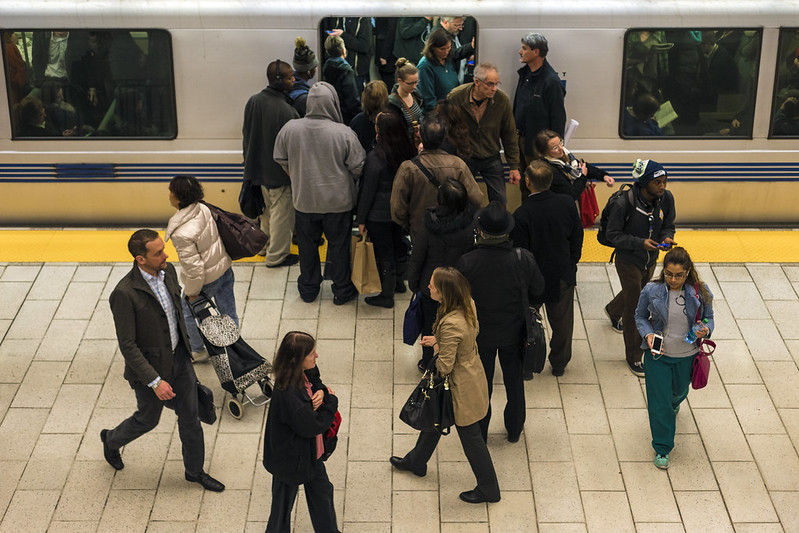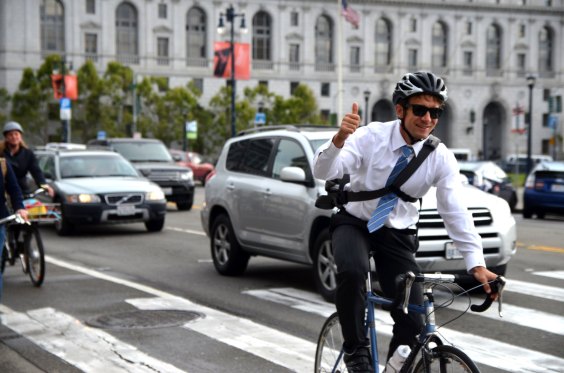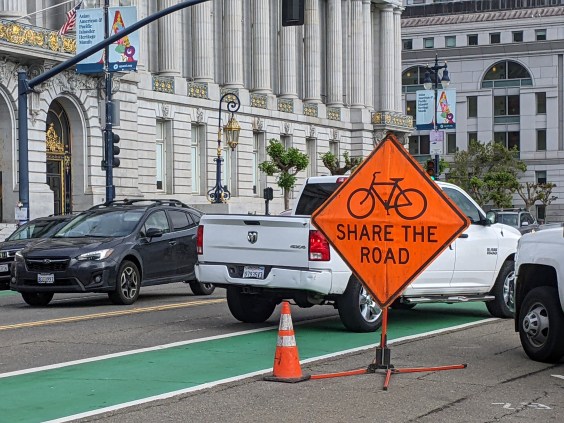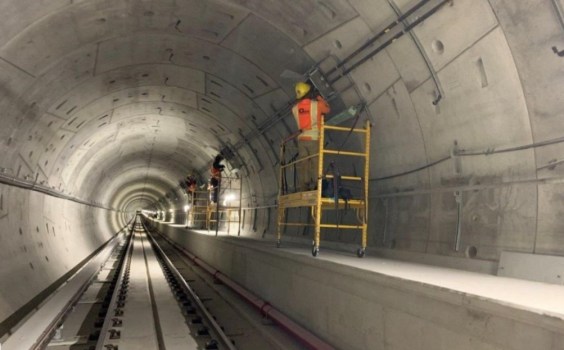
Commuters in the Bay Area ditched cars faster than in any other major metropolitan area between 2006 and 2013, according to a new U.S. Census report. With studies showing that car traffic in San Francisco is declining, the report is one more sign that efforts in SF and the region to attract commuters to transit, walking, and biking may be working.
The report looked at work trips in the San Francisco-Oakland-Hayward Metropolitan Statistical Area. The Sacramento Bee summed up the findings:
Commuting by private car in the densely populated region, including carpooling, dropped from 73.6 percent of workers in 2006 to 69.8 percent seven years later, giving it the nation’s third highest level of alternative commuting.
Commuters in the New York City-centered metropolitan area were least likely to use private cars to get to their jobs in 2013, but even so, a majority – 56.9 percent – still did. Ithaca, NY, had the second lowest use of cars, 68.7 percent, followed by the San Francisco Bay Area.
It's not clear which modes of transport the 3.8 of commuters who ditched cars switched to, as the local breakdown wasn't immediately available. Record-breaking transit ridership on BART and Caltrain have continued to make headlines over recent years (though, per capita, ridership has declined over the last 20 years).
"The Bay Area continues to be a leader in shifting away from driving and toward alternative transportation modes, particularly public transit, but we need to do much more," Supervisor Scott Wiener, who sits on the Metropolitan Transportation Commission, wrote in a Facebook post today.
Wiener emphasized the urgency of some of the major expansions envisioned for regional transit: "A second transbay tube, train service to the Transbay Transit Center, electrified Caltrain, more subway lines, and a lot more bus service everywhere."
The paltry level of funding devoted to transit expansions also concerns several state legislators from the Bay Area, including SF Assemblymember David Chiu, who held a press conference Friday to announce efforts to boost state funds for transit projects.
The regional trend away from driving -- and demand for better transit -- may accelerate with a mandate implemented last September for large employers in the Bay Area to provide incentives for workers to commute without driving. The program, administered Bay Area Air Quality Management District, is the largest in the country, and is based on earlier effective local programs instituted by SF, Berkeley, Richmond, and SFO Airport, according to SPUR.
Census data, it's worth noting, provides a limited picture of how people get around, since it only includes the mode of transport respondents use most often to get to work. When the SFMTA conducted a more holistic survey of travel within SF, it found that a majority of trips are made without a car, contrary to census estimates.
Meanwhile, Plan Bay Area, the region's long-term plan for smart growth transportation, still calls for highway expansions and expects SF to build 92,000 residential parking spaces by 2040 under current policies (though a city effort to implement more sustainable measures is underway).
The trajectory shown in the census report "is good news for the Bay Area," Wiener wrote, "but we have a lot more to do to achieve transportation sustainability."
As the Bay Area continues to grow -- we're projected to add over 2 million net new residents over the next 25 years -- we must move even more aggressively to give people reliable non-car alternatives and reduce the percentage of people driving. Bay Area roads and highways cannot sustain another million cars on the road, yet that is where we're headed if we don't dramatically improve non-car alternatives.




